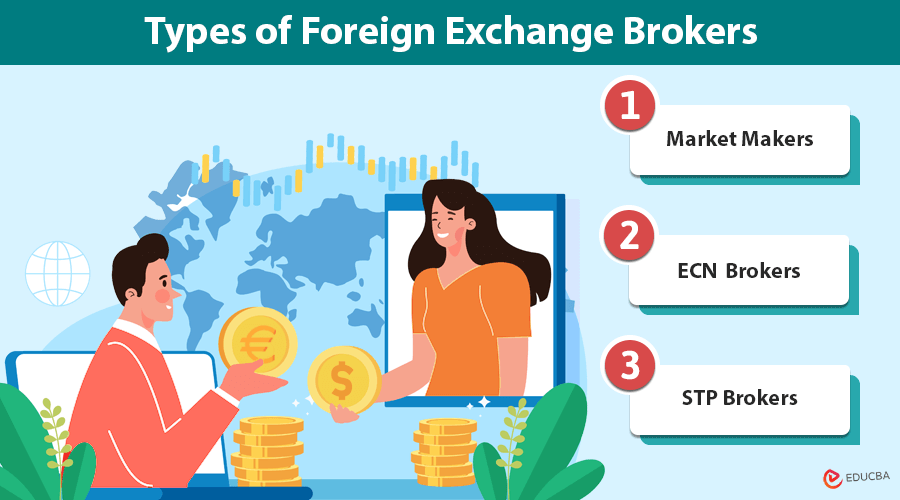
Understanding Foreign Exchange Brokers
Currency transactions are essential to both retail and institutional investors. Understanding the role of foreign exchange brokers is important for effectively managing the complexities of currency trading. These Foreign Exchange Brokers provide traders with the necessary platforms, tools, and insights to engage in the global Forex market.
Foreign exchange broker connects traders to the larger financial markets, helping them place orders quickly and stay updated. Their influence is not only on facilitating transactions but also on shaping market dynamics, offering crucial insights that can affect trading strategies.
Functions of Foreign Exchange Brokers
1. Facilitating Transactions
A Forex broker’s main job is to execute trades. They provide a medium for traders to buy and sell currency pairs and market data to help them make decisions. A reliable Forex broker reduces slippage, ensuring traders can enter and exit at the best prices.
2. Providing Market Access and Tools
Another vital function of a Forex broker is offering access to market information and trading tools. Many Foreign Exchange Brokers provide comprehensive platforms with technical analysis tools, real-time data, and charting features. These resources help traders develop and implement effective strategies. Additionally, educational materials such as webinars and tutorials support traders in growing their skills and market knowledge.
Types of Foreign Exchange Brokers
Choosing the right Forex broker is important for your trading success. T here are three main types of Foreign Exchange Brokers, each offering different features that affect trading experiences and outcomes:
1. Market Makers
How They Work: Market makers provide liquidity by setting bids and asking prices themselves.
Pros:
- Defined execution prices.
- Guaranteed liquidity, even in volatile conditions.
Cons:
- Potential for wider spreads.
- Possible conflict of interest as brokers may profit from client losses.
2. ECN (Electronic Communication Network) Brokers
How They Work: ECN brokers connect traders directly to the interbank market, providing access to real market prices.
Pros:
- Lower spreads.
- Direct access to liquidity providers.
Cons:
- Risk of slippage during volatile conditions.
- Commission-based fees.
3. STP (Straight Through Processing) Brokers
How They Work: STP brokers send orders directly to liquidity providers, bypassing any dealing desks.
Pros:
- Reduced bid-ask spreads.
- Faster order execution.
- Less potential for price manipulation.
Cons:
- May have higher commission fees depending on the broker.
Picking the right broker depends on your trading style, goals, and needs.
Factors to Consider When Choosing a Forex Broker
When choosing a Forex broker, keep these factors in mind to make the best decision for your trading needs:
1. Regulation
Ensure that a reputable financial authority regulates foreign exchange brokers. Regulation adds an extra layer of security, reducing the risk of dishonest practices.
2. Trading Platform
The Forex broker’s trading platform should be reliable, easy to use, and have the tools needed for technical analysis. A well-designed platform will enhance your trading experience and efficiency.
3. Fees and Commissions
Look into the Forex broker’s fee structure. High fees can erode your profits over time. Compare commission rates and spreads to find the most transparent fee schedule.
4. Customer Support
Good customer support is important, especially when problems come up during trading. Ensure the Foreign Exchange Brokers offers responsive support channels (phone, chat, email) to assist you when needed.
5. Account Types
Different Foreign Exchange Brokers offer various account types tailored to different trading styles. Pick an account that matches your trading plan and budget.
6. No Deposit Bonuses
Some foreign exchange brokers offer no deposit bonus Forex, allowing new traders to start trading with real funds without risking their money. This can be a great opportunity for beginners to familiarize themselves with the market.
Evaluating Personal Needs
Your personal trading preferences play a significant role in the decision-making process. Reflect on the following:
- Trading Style: Are you a day trader or a long-term investor? Choose a partner that aligns with your approach.
- Asset Availability: Ensure the broker provides access to the markets and assets you want to trade.
- Leverage Options: Different traders will have varying needs for leverage; assess what is appropriate for your strategy.
- Educational Resources: Look for a partner that provides learning tools and resources to help you grow as a trader.
By carefully evaluating these aspects, you can ensure that your choice of trading partner supports your specific requirements and ambitions in the market.
Final Thoughts
Choosing the right Forex broker is important for successful trading. Consider factors like regulation, trading platform quality, fees, and customer support. Understand the different broker types—Market Makers, ECN, and STP—to determine which suits your trading style. Evaluate your personal needs, such as leverage, educational resources, and asset availability. By carefully selecting a broker that aligns with your goals and preferences, you can improve your chances of success in the dynamic world of Forex trading.
Recommended Articles
We hope this guide on Foreign Exchange Brokers has been helpful. Check out these recommended articles for more insights on trading strategies, market analysis, and choosing the best brokers.
